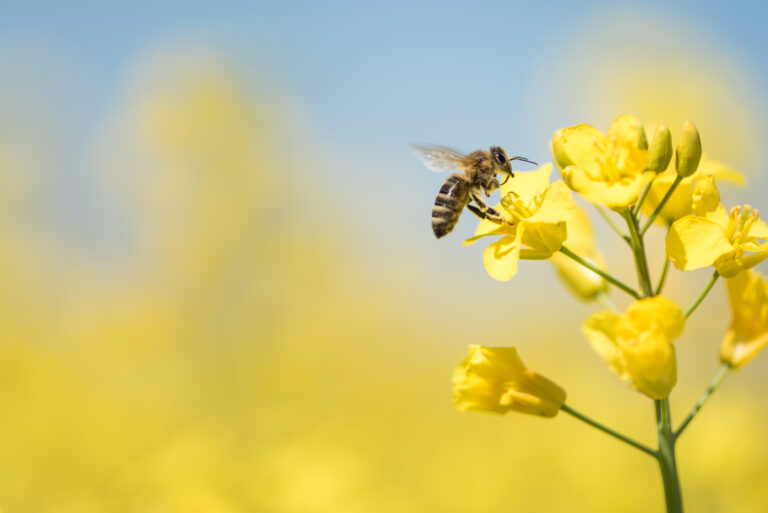Welcome to the wonderful world of bees! It’s time to celebrate and deepen our understanding of these tiny yet mighty creatures that play an irreplaceable role in our ecosystem’s balance.
On May 20th, the world celebrate World Bee Day, a United Nations global initiative to raise awareness about the importance of bees and other pollinators.
The proclamation of World Bee Day is as a reminder of the numerous challenges that bees face in the modern world. Habitat loss, climate change, pesticide use, and diseases, the bee population has declined sharply worldwide.
On this special occasion, we go on a buzzing journey to explore the intriguing world of bees and discover the remarkable facts that make them an indispensable part of our planet’s biodiversity. Let’s dive in and unlock the hive of bee facts that await us!
- There are about 250 species of Solitary bees and Bumblebees and one species of Honeybee in the UK
- Solitary bees and Bumblebees live in small colonies of 12 to 300 members
- The benefit of bees to the production of fruiting trees (apples, Pears. Etc.) has been demonstrated with significant improvement to both yield and quality (ref. The Red Bee Hive Company).
- While oilseed rape does not require insect pollination, trials have shown that the presence of bees in an OSR crop can improve the overall oil content of the seed.
- Plant breeders use insect pollinators to enhance seed set in the production of hybrid oilseed rape planting seed.
- Typically, the difference between a Bee Keeper and a Bee Farmer is that Bee Keepers have a maximum of 50 hives, and Bee Farmers will usually have more than 50 hives
- The ‘airframe’ of a bee’s wings typically last around 600 hours or 500 miles.
- Oilseed rape honey is usually high in sugar and forms crystals at room temperature. It is frequently used as a ‘base’ for blends with more highly valued honey such as Heather and Borage honey.
- More than 75% of food crop types globally depend to some extent on insects and other animals for pollination. The value of pollinators to the global ecosystem is estimated to more than €150 bn annually
- Premium Crops recommends that Borage growers keep at least 2 hives per hectare pf crop to enhance pollination and boost yield (see: https://www.premiumcrops.com/borage.html )
References:
https://www.thebeefarmer.co.uk/
https://www.syngenta.com/en/sustainability/operation-pollinator
https://beefarmers.co.uk/
https://www.bbka.org.uk/


Cereals event 2025

Cefetra Group to be acquired by First Dutch, entering new phase of independent growth


